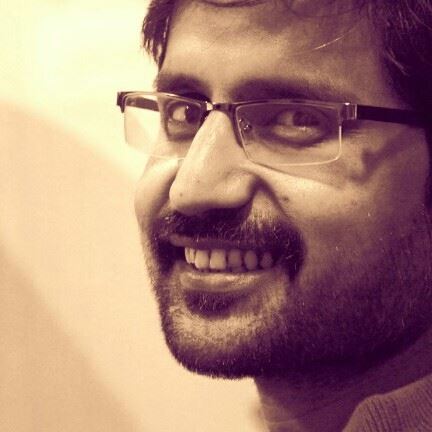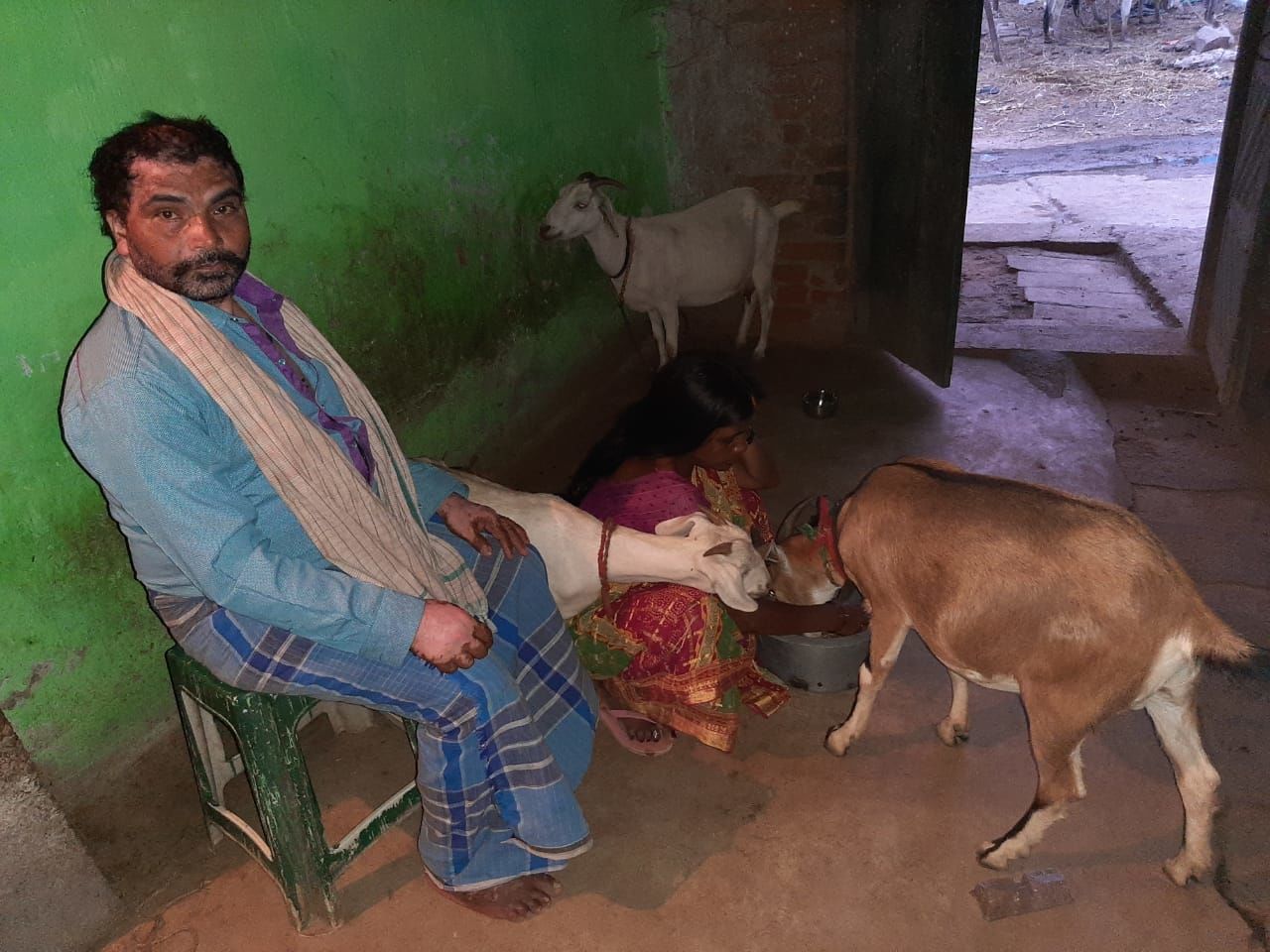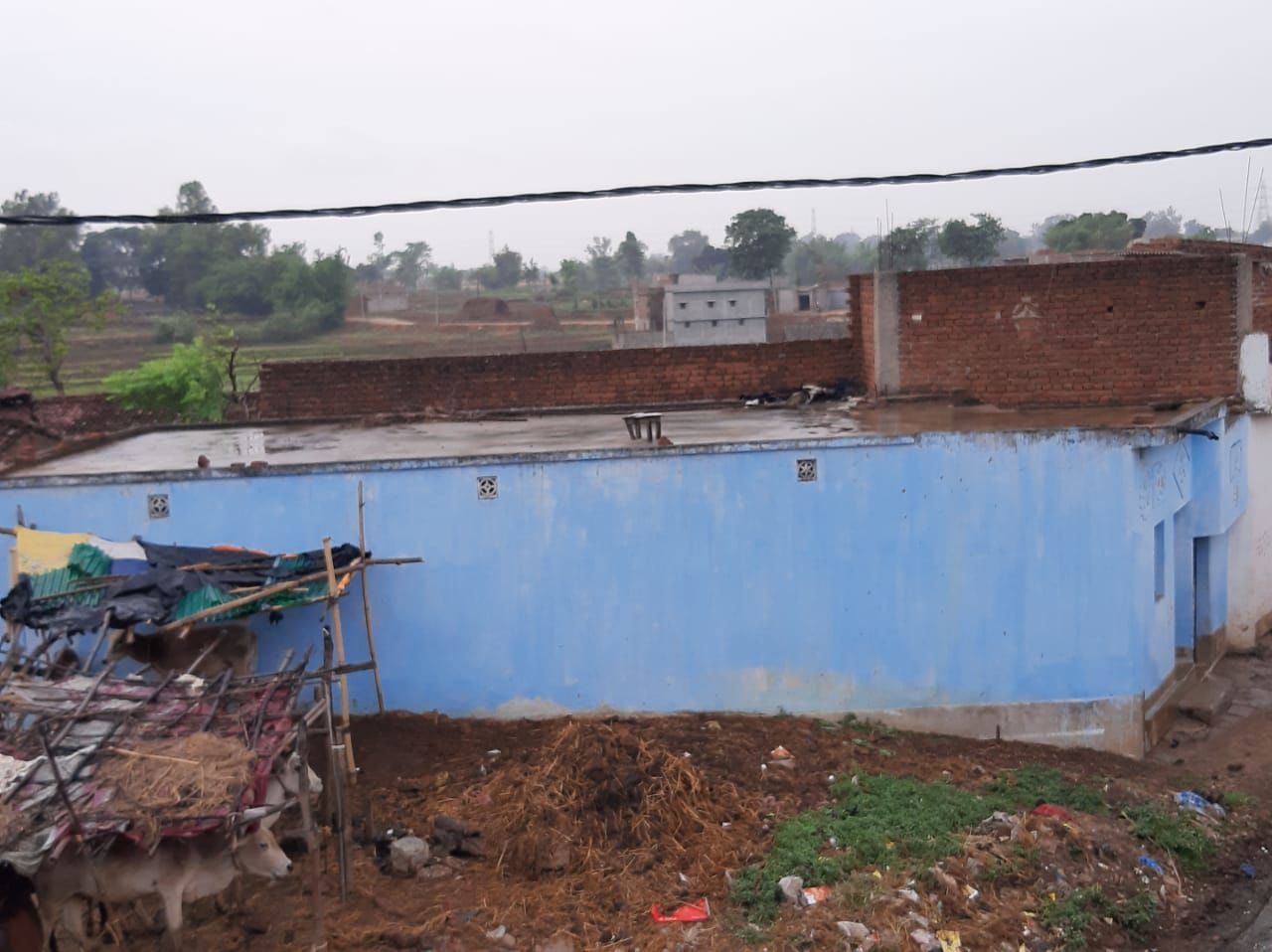“Our corona tests came negative. Despite that, the villagers were hostile towards us”
With the arrival of migrant labourers, coronavirus is now spreading in villages. While earlier healthcare workers were attacked, now corona-positive patients are facing a boycott

With the arrival of migrant labourers, coronavirus is now spreading in villages and many villages are fast becoming corona hotspots. One such village is Kargalo village in Vishnugarh block in Hazaribagh district of Jharkhand. When a son returned home after visiting his corona-infected father, there was an eerie silence. People were keeping their distance despite the family testing negative.
There is a sharp rise in the number of cases in states including Uttar Pradesh, Bihar and Jharkhand where migrant labourers are returning homes in large numbers. There have been reports from many places in India that people have been attacking doctors and other health workers and misbehaving with corona-positive patients. Sunil and his family are also facing similar social disdain.
Twenty-year-old Sunil’s father Ugan Sav used to work in Asansol, West Bengal, with a transport company that delivered goods. With the closure of work due to the lockdown, Ugan got stuck there and had then decided somehow to return to his village.

Sunil said: “Due to the prolonged lockdown, my father left Asansol on the morning of March 29, and somehow reached the Jharkhand-Bengal border. From there, he borrowed a ride upon a truck which already had about 50 labourers on board. He reached Bagodar by that truck.”
Sunil, who went on a motorcycle from the village to fetch his father from Bagodar, said: “I took my father to the Sadar hospital in Vishnugarh, where he was held for medical investigation and I came back to my village. The next day, it had spread throughout the village that I had gone to meet my father.”
Sunil’s father was sent to the district hospital in Hazaribagh district by the administration where he was found to be corona positive, three days after he was tested upon. On the same day, the news spread like fire in the village. The villagers feared that Sunil, who had gone to meet his father, had also caught the dreaded infection.
Sunil said: “There was an atmosphere of acute panic in the village. The people gave up passing through our house. On the same day, four or five officers came to the village, inquiring from me whom all I had met up since then and I gave them the full information. I cooperated fully with the officers. They had come along with a sanitizing vehicle and the entire village was sanitized.”

He added: “They took me and my mother to the hospital by ambulance for medical tests while, on our request, my younger brother was allowed to stay back in the house to guard our animals.”
Sunil and his mother were taken to the Hazaribagh hospital where they were found to be corona-negative in a test that was conducted on April 6 and were shifted to the general ward.
Sunil said: “On the same day, another patient named Dasrath Mahato was admitted to the general ward and two days later, we came to know that he was corona positive. There were 14 more people in that ward. Upon their complaint, he was shifted elsewhere. Then we were examined yet again and after testing negative three days later, we were allowed to return to our village on April 14.”
According to Sunil, his father was admitted to a different hospital. While in the hospital, the family managed to know about each other’s wellbeing on the phone. His father’s condition was improving and after he too had tested negative, he was sent to the village by an ambulance on April 22 for the purpose of home quarantine.
“Despite testing negative, the hostility of villagers against us had increased. Nobody was talking to us. There was no ration at home, we had only a little rice left with us in the name of food. There was nothing in the house — flour, dal, oil or soap,” said Sunil.
He added: “We knew if we approach the village ration shop, we would not be given anything. Looking at the villagers’ hostility and stigma, we didn’t find it fit to go there and suffer humiliation, so we called the head of the village and demanded that he provides us with at least some ration. He managed somehow to provide us 15 days ration.”
Sunil’s house does not even have a toilet and his family has to go out for defecation. The villagers also complained about this to the village head for their safety.
Sunil said: “Although we did not get out of our homes, villagers had complained and so pradhan also built a toilet outside our house in two days. But even after finishing the quarantine period, the villagers still do not talk to us, especially to my father, as if we have become their enemies.”
The return of migrant labourers in the lockdown is still continuing and they are reaching their villages. The schools have been set up as quarantine centres for these returning migrants at several villages. One such centre has been built in the village of Kargalo.
Talking about this centre, Sunil informed: “A quarantine centre has been set up in a village school where 60 to 70 people are currently quarantined. The school does not even have toilets, there is no cleanliness, so there is still an atmosphere of fear in the village. Nobody goes around that school. People have even given up moving in and outside the village altogether.”
A small mistake of Sunil was enough to move people to hostility. No one in the village is still interacting with Sunil’s family. Despite testing negative for corona, the last about two months were agonizing for Sunil and his family. The behaviour of the villagers towards them has completely altered.
The return of migrant labourers continues to increase the risk of spreading corona infections in villages. Hundreds of new cases are coming up every day from small districts. If people are not sensitized, like Sunil’s family, the villagers may suffer too.

